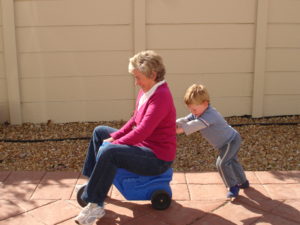By Ted McEnroe, Director of Research and Training
I was recently reading a post from Joe Cothrel on the Lithium blog as they celebrated their 8th anniversary of their community (about 800 in human years, I think.) In it, he noted eight community lessons they had learned – all of which were great but one of which, “Your Superusers Are In It for the Long Haul,” really resonated with me as I headed out to join a workshop to build a community management training curriculum.
We often focus on the role of the community manager as the wise soul at the heart of the community. But in an environment where community managers frequently change jobs and move up the ladder, the community manager is often one of the newest members of the community they manage.
First I wanted to get some data – we ask about community age in the State of Community Management survey, and we ask about the time community managers have spent in their role in our Community Careers and Compensation survey, but we don’t ask both at the same time. (I might change that for 2017.) However, we can say this:
The average age of a community in the 2016 SOCM survey is about 5 years, and 54 percent of communities have less than 3 years of existence.
The average time in role for a community manager in the 2015 CCC is 2.1 years, and 81 percent of community managers have held their role for 3 years or less.
That gap suggests a few things for communities – and often these are things that community professionals take into account. They know they are often coming into an existing culture, which means figuring out what’s going on, and how to best apply management skills to improve engagement.
But it’s easy for a young community manager to assume after a few months that they understand the culture, and work on an assumption that the community in 2016 is “the way it’s always been.” The thing is, a lot of your community members know better, and a lot of your superusers will still be carrying the torch for your community long after you have moved on to new roles and organizations.
With that in mind, here are some tips:
- Connect with key members of your community as soon as you can on starting a new role, and listen to them. Earn their trust. Understand their perspectives. Take a lot of notes.
- About 6 months after you start in a role, take out those notes from the initial interviews, and reflect on your initial conversations again. How does your read of the notes differ from what it was when you started?
- If you are in a long-running community without an advocacy program, start one. Tap into the expertise of members – for ideas, programming and a better understanding of the community as a part of the organization (when that applies). You’re scaling yourself, engaging members and much more.
This doesn’t mean a new community manager shouldn’t come in with new ideas and a determination to improve community. That’s why you were hired. But it’s equally important to know the context into which you are coming.
Santayana famously said that “Those who cannot remember the past are condemned to repeat it.” For new community managers, learning about the history of your community may play a key role in moving it ahead.

